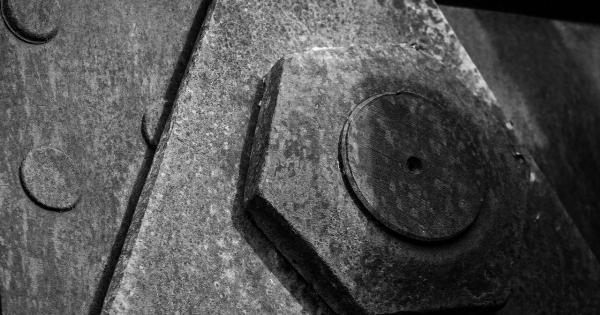Iron is an essential mineral that is required by the body to transport oxygen, produce energy, and maintain healthy skin, hair, and nails. However, many people suffer from iron deficiency, which can lead to anemia and other health problems.
If you want to make sure you are absorbing enough iron from your diet, try these simple tips:.
1. Eat Iron-Rich Foods
The best way to ensure that your body is getting enough iron is to eat foods that are rich in this essential mineral. Some of the top sources of iron include:.
- Red meat (beef, lamb, pork)
- Poultry (chicken, turkey)
- Seafood (oysters, clams, salmon)
- Beans and lentils (chickpeas, kidney beans, black beans)
- Tofu
- Nuts and seeds (pumpkin seeds, almonds, cashews)
- Dark leafy greens (spinach, kale, collard greens)
- Iron-fortified cereals and breads
Incorporating these foods into your diet on a regular basis can help boost your iron absorption.
2. Pair Iron-Rich Foods with Vitamin C
Vitamin C can enhance your body’s ability to absorb iron. So, when you’re eating iron-rich foods, try to pair them with foods that are high in vitamin C. Some good options include:.
- Citrus fruits (oranges, grapefruit, lemons)
- Strawberries
- Tomatoes
- Bell peppers
- Broccoli
For example, if you’re eating a spinach salad, you could toss in some orange segments or top it with a vinaigrette made with fresh lemon juice. The vitamin C in the citrus will help your body absorb the iron in the spinach.
3. Avoid Foods That Inhibit Iron Absorption
Just as some foods can enhance your body’s ability to absorb iron, others can inhibit it. Some of the foods and beverages to avoid when trying to boost your iron absorption include:.
- Tea and coffee
- Dairy products
- High-fiber foods (bran, whole grains)
These foods can prevent your body from absorbing the iron in your food. So, if you’re eating a meal that is high in iron, try to avoid drinking tea or coffee with it.
Additionally, it’s best to avoid taking calcium supplements or eating calcium-rich foods at the same time as iron-rich foods since calcium can interfere with iron absorption as well.
4. Cook with Cast Iron Cookware
Cooking with cast iron cookware can also help increase your iron intake. When you cook acidic foods (like tomato sauce or chili) in a cast iron skillet, some of the iron from the cookware can actually leach into the food.
This can help you get more iron in your diet without having to make any dramatic changes to your eating habits.
5. Talk to Your Doctor About Iron Supplements
If you are still struggling to get enough iron in your diet, you may want to talk to your doctor about taking an iron supplement.
Iron supplements can be purchased over-the-counter or prescribed by a doctor, depending on the severity of your iron deficiency.
It’s important to note that you should always talk to your doctor before starting any new supplement regimen.
Conclusion
Iron is an essential mineral that plays a key role in many bodily functions. If you want to make sure your body is getting enough iron, try incorporating these tips into your daily routine.
By eating iron-rich foods, pairing them with vitamin C, avoiding foods that inhibit absorption, cooking with cast iron cookware, and possibly taking an iron supplement, you can help ensure that your body is getting the iron it needs to stay healthy and functioning properly.






























